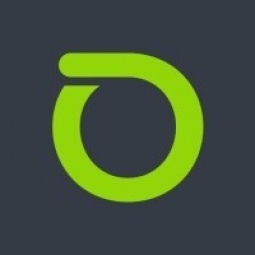Saudi German Hospital-Dubai Remains the Most Advanced Hospital Network in the Middle East with the OptiView XG

Company Size
1,000+
Region
- Middle East
Country
- United Arab Emirates
Product
- NetScout OptiView® Network Analysis Tablet
Tech Stack
- Network Analysis
- Wireless LAN analysis
- Virtualized server architecture
Implementation Scale
- Enterprise-wide Deployment
Impact Metrics
- Customer Satisfaction
- Productivity Improvements
Technology Category
- Networks & Connectivity - Network Management & Analysis Software
Applicable Industries
- Healthcare & Hospitals
Applicable Functions
- Maintenance
Use Cases
- Remote Asset Management
- Root Cause Analysis & Diagnosis
Services
- System Integration
About The Customer
Saudi German Hospital-Dubai is the sixth tertiary care hospital in the Saudi German Hospital Group, the largest private hospital group in the Middle East. The 316-bed hospital provides emergency, surgical and other medical services across a wide array of specialties, including cardiology, diabetes, pulmonary, dialysis and renal, audiology, sports injury and much more. The Saudi German Hospital Group includes nine hospitals, with two more planned in the coming year. The Dubai branch is currently the newest and most state-of-the-art hospital in the group, blending leading healthcare with cutting-edge technology. The hospital is completely digital. Central electronic records, medical imaging and the hospital’s picturing archiving and communications systems ensure the most complete care possible by providing doctors with the entire patient experience – from the time they come through the door to the time they leave. An advanced IT network and hundreds of operational and medical applications enable this digital patient experience. The network features 3,500 nodes with virtualized server and end-user client architectures. The entire hospital is wireless-enabled, extending application availability from the waiting room to the operating room.
The Challenge
Saudi German Hospital-Dubai is considered the most state-of-the-art hospital in the Middle East. It operates an advanced IT network and hundreds of applications that enable an all-digital patient health record management system. The network features 3,500 nodes with virtualized server and end-user client architectures. This advanced network and all-digital environment benefits doctors and patients, but also increases the expectations of the hospital’s IT team. There is no room for error. Doctors must have immediate access to critical records and applications to make the right patient diagnosis and treatment decisions. With life-and-death consequences at stake, the network and applications must perform 24/7 with no downtime and absolutely no exceptions. With each disparate system operating in a silo and requiring different monitoring and management tools, the entire system was unnecessarily complex and time-consuming to administer.
The Solution
Saudi German Hospital-Dubai found a solution with NetScout and the OptiView XG Network Analysis Tablet. The OptiView XG performs end-to-end network performance and stress tests, automatically detecting and analyzing network problems before offering step-by-step resolutions. The OptiView XG supports both 1GbE and 10GbE along with full 802.11 a/b/g/n/ac wireless LAN analysis. It can be used in any environment, including a data center, with virtualized servers or out at a remote or wireless connection site. The hospital evaluated several network management systems with ongoing testing at various branches. The OptiView XG scored highest with its user-friendly interface and logical workflow to help easily isolate and resolve issues. Most compelling, the Saudi German Hospital-Dubai IT team found it could use the OptiView XG to get a macro-level view of the entire network, and then dive into packet-level data to see micro-level issues. The OptiView XG licensing model was a major selling point for Juzer. The OptiView XG monitors and troubleshoots any device connected to the network with no per-device license required. Competitive solutions require a separate license for each device on the network. The hospital experiences a varying influx of guest users on the network, ranging from visiting medical staff to the patients themselves, which would have made pinpointing an exact count for licensing purposes extremely difficult.
Operational Impact

Case Study missing?
Start adding your own!
Register with your work email and create a new case study profile for your business.
Related Case Studies.

Case Study
Hospital Inventory Management
The hospital supply chain team is responsible for ensuring that the right medical supplies are readily available to clinicians when and where needed, and to do so in the most efficient manner possible. However, many of the systems and processes in use at the cancer center for supply chain management were not best suited to support these goals. Barcoding technology, a commonly used method for inventory management of medical supplies, is labor intensive, time consuming, does not provide real-time visibility into inventory levels and can be prone to error. Consequently, the lack of accurate and real-time visibility into inventory levels across multiple supply rooms in multiple hospital facilities creates additional inefficiency in the system causing over-ordering, hoarding, and wasted supplies. Other sources of waste and cost were also identified as candidates for improvement. Existing systems and processes did not provide adequate security for high-cost inventory within the hospital, which was another driver of cost. A lack of visibility into expiration dates for supplies resulted in supplies being wasted due to past expiry dates. Storage of supplies was also a key consideration given the location of the cancer center’s facilities in a dense urban setting, where space is always at a premium. In order to address the challenges outlined above, the hospital sought a solution that would provide real-time inventory information with high levels of accuracy, reduce the level of manual effort required and enable data driven decision making to ensure that the right supplies were readily available to clinicians in the right location at the right time.

Case Study
Gas Pipeline Monitoring System for Hospitals
This system integrator focuses on providing centralized gas pipeline monitoring systems for hospitals. The service they provide makes it possible for hospitals to reduce both maintenance and labor costs. Since hospitals may not have an existing network suitable for this type of system, GPRS communication provides an easy and ready-to-use solution for remote, distributed monitoring systems System Requirements - GPRS communication - Seamless connection with SCADA software - Simple, front-end control capability - Expandable I/O channels - Combine AI, DI, and DO channels

Case Study
Driving Digital Transformations for Vitro Diagnostic Medical Devices
Diagnostic devices play a vital role in helping to improve healthcare delivery. In fact, an estimated 60 percent of the world’s medical decisions are made with support from in vitrodiagnostics (IVD) solutions, such as those provided by Roche Diagnostics, an industry leader. As the demand for medical diagnostic services grows rapidly in hospitals and clinics across China, so does the market for IVD solutions. In addition, the typically high cost of these diagnostic devices means that comprehensive post-sales services are needed. Wanteed to improve three portions of thr IVD:1. Remotely monitor and manage IVD devices as fixed assets.2. Optimizing device availability with predictive maintenance.3. Recommending the best IVD solution for a customer’s needs.

Case Study
HaemoCloud Global Blood Management System
1) Deliver a connected digital product system to protect and increase the differentiated value of Haemonetics blood and plasma solutions. 2) Improve patient outcomes by increasing the efficiency of blood supply flows. 3) Navigate and satisfy a complex web of global regulatory compliance requirements. 4) Reduce costly and labor-intensive maintenance procedures.

Case Study
Harnessing real-time data to give a holistic picture of patient health
Every day, vast quantities of data are collected about patients as they pass through health service organizations—from operational data such as treatment history and medications to physiological data captured by medical devices. The insights hidden within this treasure trove of data can be used to support more personalized treatments, more accurate diagnosis and more advanced preparative care. But since the information is generated faster than most organizations can consume it, unlocking the power of this big data can be a struggle. This type of predictive approach not only improves patient care—it also helps to reduce costs, because in the healthcare industry, prevention is almost always more cost-effective than treatment. However, collecting, analyzing and presenting these data-streams in a way that clinicians can easily understand can pose a significant technical challenge.



